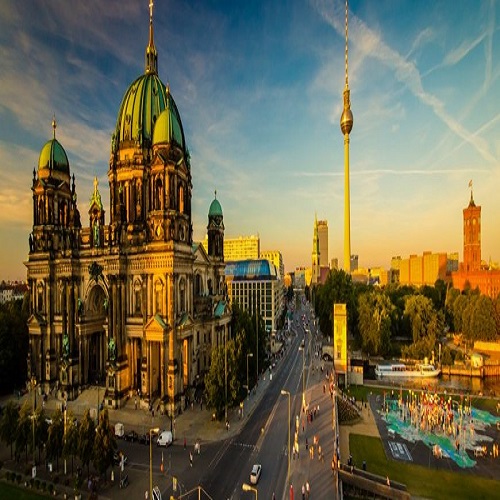Berlin is the capital and largest city of Germany by both area and population. Its 3,769,495 inhabitants, as of 31 December 2019 makes it the most-populous city of the European Union, according to population within city limits. One of Germany's 16 constituent states, Berlin is surrounded by the state of Brandenburg, and contiguous with Potsdam, Brandenburg's capital. Berlin's urban area has a population of around 4.5 million and is the second most populous urban area in Germany after the Ruhr. The Berlin-Brandenburg capital region has about six million inhabitants and is Germany's third-largest metropolitan region after the Rhine-Ruhr and Rhine-Main regions.
Berlin straddles the banks of the River Spree, which flows into the River Havel (a tributary of the River Elbe) in the western borough of Spandau. Among the city's main topographical features are the many lakes in the western and southeastern boroughs formed by the Spree, Havel, and Dahme rivers (the largest of which is Lake Müggelsee). Due to its location in the European Plain, Berlin is influenced by a temperate seasonal climate. About one-third of the city's area is composed of forests, parks, gardens, rivers, canals and lakes. The city lies in the Central German dialect area, the Berlin dialect being a variant of the Lusatian-New Marchian dialects





